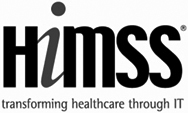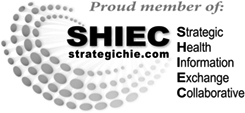Responsive. Super-Reliable. Secure. These are three words Danni Swafford, Addictions Recovery Center’s chief information & operations officer, uses to describe Reliance’s health information exchange services.
Using Reliance services, specifically the Reliance Community Health Record, eReferrals and direct secure messaging, helps ARC provide more efficient services and better care in a secure environment. As an organization devoted to providing individuals and their families with the opportunity to choose a healthier way of life, the non-profit Addictions Recovery Center (ARC) has offered affordable, confidential, and individualized treatment services in Southern Oregon for 45 years.
She noted that ARC experienced many operational efficiencies by using Reliance services. The greatest impact was in workflow improvements centering around the referrals that they do with the Birch Grove Clinic.
“It is so helpful to have a one-stop shop to track all of the information,” she said. Having the automated process provides peace of mind and accountability, as her team does not need to worry about staff members missing information.
Swafford also said using Reliance has reduced the number of duplicate services for their clients.
“We discovered that La Clinica and ARC were duplicating UAs (urine analyses). Since we had a quick and easy way to share that information, we decreased the number of labs being ordered for our shared patients. This has a big financial impact and also is good for the patient because they know we’re talking to each other to improve their care,” she said, adding that they no longer have to fax anything.
In terms of benefits to patient care, Swafford is working with her team on an outreach plan when ARC staff are called to the hospital or jail for a consult. She envisions checking with Reliance Community Health Record first to get a quick patient history including the medications the patient has been prescribed in order to make a preliminary assessment about what to do to better address the needs of a patient upon referral from the hospital.
She also noted that ARC’s EHR is interfaced with Reliance. Once Reliance’s consent management functionality is live, an ARC client’s protected substance use (SU) treatment information will be able to be shared with other providers based on the client’s consent to share their information.
“Substance use treatment providers have a history of keeping ourselves in a bubble because we were forced to from a legal standpoint. This culture hasn’t really changed much,” Swafford said. With the security Reliance offers, ARC and other treatment providers will be able to share behavioral health information in a legally compliant way to improve care coordination and health outcomes for some of the most vulnerable populations.
She said the behavioral health information exchange patient education video and other materials, which Reliance developed with federal funding obtained in collaboration with the Oregon Health Authority, will be helpful for patients and staff. The online resources explain the benefits of health information exchange and the patient’s right to keep Drug or Alcohol Treatment Program records private. The materials also describe how Reliance can manage a person’s consent and allow only providers they authorize to view their protected treatment program information. Reliance also has created consent form templates for groups who may need help if creating a legally compliant release of information form for their clients/patients to authorize their information to be shared through Reliance.
When asked what advice she would give to a new provider regarding enrolling with Reliance, she said, “Get over your fears and do it! Take it slow and make sure that everyone has the right training before moving forward. Let people test it out to get used to it. Take advantage of working with Reliance because they have great resources, experience and can answer questions.”



